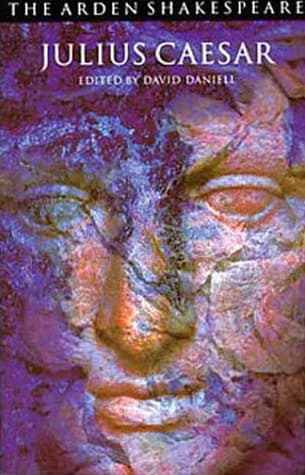
Book Review Summary: Julius Caesar
Introduction
"Julius Caesar" is a play written by William Shakespeare, one of the most renowned playwrights in history. This edition of the play, edited by Daniell, explores Julius Caesar as a political play, a radical departure from contemporary practice. The play combines fast action and immediacy with compelling rhetorical language, making it a unique and thought-provoking work. This article will provide an analysis of the views of readers, reasons for recommending and not recommending the book, and a conclusion summarizing the overall experience.
About William Shakespeare
William Shakespeare, often referred to as the Bard of Avon, was an English poet and playwright. He is widely regarded as the greatest writer in the English language and the world's pre-eminent dramatist. Shakespeare's works consist of 38 plays, 154 sonnets, two long narrative poems, and several other poems. His plays have been translated into every major living language and are performed more often than those of any other playwright. Shakespeare was born in Stratford-upon-Avon and died on his fifty-second birthday, coinciding with St George’s Day. His plays have been adapted and rediscovered by new movements in scholarship and performance throughout the centuries.
Analysis of Views
-
Political Relevance: Many readers appreciate the play's political relevance and find it applicable to contemporary society. They see parallels between the events in the play and real-world political situations, making it a thought-provoking work that resonates with readers today.
-
Rhetorical Language: The use of rhetorical language in the play is highly praised by readers. Shakespeare's ability to create powerful and persuasive speeches is a standout feature of the play. The dialogue is engaging and leaves a lasting impression on readers.
-
Character Development: The characters in the play are well-developed and complex. Readers appreciate the depth of their motivations and the moral dilemmas they face. The character of Brutus, in particular, is often discussed as a tragic hero who struggles with his own conscience.
-
Action and Immediacy: The fast-paced action and immediacy of the play are highly praised by readers. The play's structure is complex but well-executed, keeping readers engaged throughout. The combination of action and rhetoric creates a compelling reading experience.
-
Historical Context: Readers appreciate the historical context of the play, which adds depth to their understanding of the story. The play draws on historical events and figures, providing insight into the political landscape of ancient Rome. This historical aspect enhances the overall experience of reading the play.
Reasons for Recommendation
-
Political Relevance: The play's political relevance makes it a valuable work for readers interested in exploring contemporary political issues through historical lenses. The parallels between past events and current situations provide a thought-provoking reading experience.
-
Rhetorical Language: Shakespeare's use of rhetorical language is a standout feature of the play. Readers appreciate the power and persuasiveness of his speeches, which make for engaging reading. The dialogue is memorable and leaves a lasting impression on readers.
-
Character Development: The well-developed characters in the play add depth to the story. Readers appreciate the moral dilemmas faced by the characters and find them relatable. The character of Brutus, in particular, is often praised for his tragic hero status.
-
Action and Immediacy: The fast-paced action and immediacy of the play keep readers engaged throughout. The combination of action and rhetoric creates a compelling reading experience that keeps readers on the edge of their seats.
-
Historical Context: The historical context of the play adds depth to readers' understanding of the story. It provides insight into ancient Roman politics and enhances the overall reading experience. The historical aspect allows readers to appreciate Shakespeare's ability to weave historical events into his work.
Reasons for Not Recommendation
-
Complexity: Some readers find the play complex due to its fast action, intricate structure, and historical context. They may struggle to fully comprehend all aspects of the story, which can detract from their reading experience.
-
Lack of Personal Connection: A few readers find that they do not connect emotionally with certain characters or events in the play. They may not find themselves invested in certain characters or feel empathy towards them, which can affect their overall enjoyment of the book.
Conclusion
"Julius Caesar" by William Shakespeare is a political play that explores themes of power, trust, betrayal, and morality through its complex characters and historical context. The play's rhetorical language, fast action, and immediacy make it a compelling reading experience that resonates with readers today. While some readers find it complex or lack personal connection with certain aspects of the story, overall, "Julius Caesar" is highly recommended for those interested in exploring Shakespeare's works or delving into political literature with historical relevance.